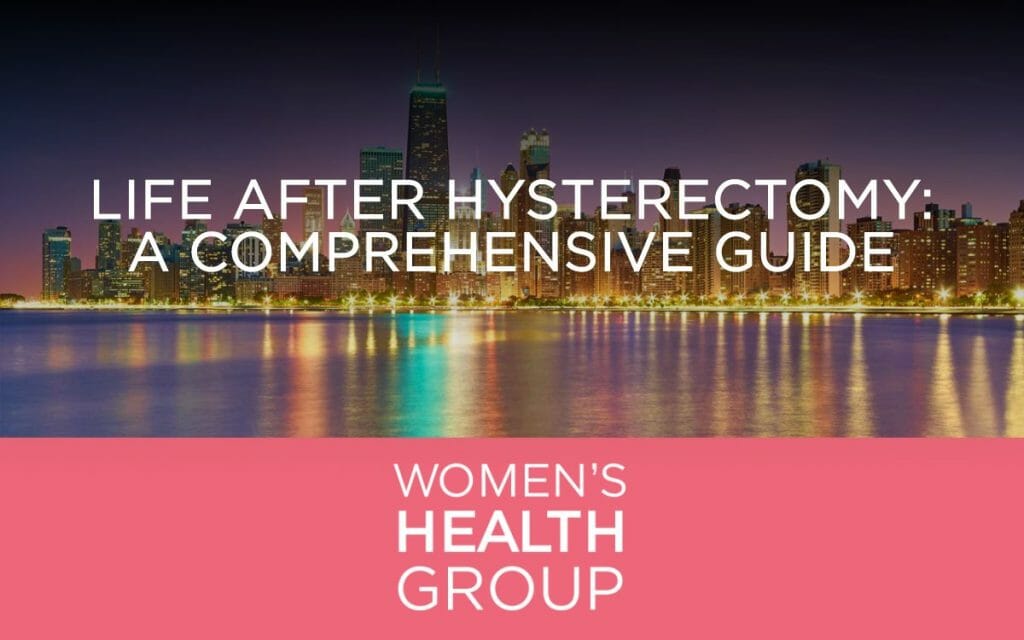Understanding a Hysterectomy
A hysterectomy, one of the most common surgeries women undergo, is the surgical removal of the uterus. Often deemed necessary by health care providers when a woman suffers from severe conditions like endometriosis, uterine fibroids, uncontrollable vaginal bleeding, or cancer of the reproductive system. This surgery may spark emotions ranging from relief to grief, and it also brings about significant changes in a woman’s life; hence, understanding the potentials of post-hysterectomy life is necessary. For a more in-depth understanding, refer to this source on the Mayo Clinic’s website.
Immediate Post-Hysterectomy Life
Immediately after a hysterectomy, most women start with a recovery period that typically lasts six to eight weeks. The initial days can be fraught with physical discomfort, emotional swings, and adjustments to daily routines. Here are some key points about the immediate post-hysterectomy period:
- Some level of pain and fatigue is customary post-surgery. Regular rest and adherence to the pain management plan recommended by your healthcare provider can aid in managing these symptoms.
- Depending on the type of hysterectomy, hormonal changes may occur, leading to symptoms similar to menopause.
- Sexual activity, strenuous exercise, and heavy lifting should be avoided until full recovery.
- A balanced diet and light exercises such as walking can aid in faster recovery.
Long-Term Life After a Hysterectomy
The long-term implications of a hysterectomy vary greatly from one woman to another. Several factors, like reason for operation, age, overall health and hormonal status post-surgery, can significantly impact a woman’s life.
- Women who have had their ovaries removed along with the uterus can experience immediate menopause, no matter their age. This leads to symptoms such as hot flashes, night sweats, vaginal dryness, and mood changes.
- There could be a shift in the body metabolism leading to weight gain, especially in women who enter menopause immediately after surgery.
- Sexual health can be affected, and women might experience a decrease in libido due to changes in hormonal levels. Women who faced painful intercourse due to conditions leading to hysterectomy might experience an improvement.
- Women’s mental health might be affected, too. Emotions such as relief or grief are common feelings post-surgery. In some cases, it can also lead to feelings of depression.
Life Enhancement After Hysterectomy
Post-hysterectomy life isn’t necessarily filled with drawbacks; many women experience numerous enhancements in life quality after their surgery. For instance, women suffering from chronic pelvic pain, heavy menstrual bleeding, or other debilitating symptoms may enjoy considerable relief following surgery. It’s crucial to communicate openly with a healthcare provider for accurate understanding and management of changes, refer to the information here as well.
Adapting to Post-Hysterectomy Life
Adapting to the changes after a hysterectomy can feel overwhelming, but it’s a manageable process. Implementing healthy habits, exploring coping mechanisms, and maintaining open communication with healthcare providers can prevent complications and improve quality of life post-hysterectomy. Understanding what entails post-hysterectomy life is the key to a smooth transition.
The Road Ahead
Undergoing a hysterectomy is a significant decision that brings about a myriad of changes both immediately post-surgery and in the long run. By staying proactive, informed, and communicative, the journey of post-hysterectomy life can indeed be made smoother and comfortable.




